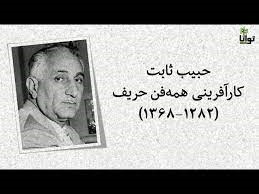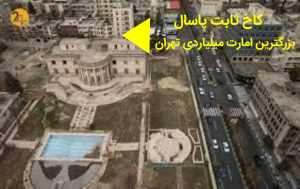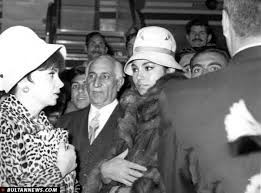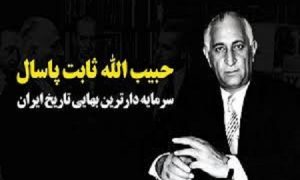By: Mrs. Najafi
Habib Sabet known as Pasal which was the name of company Habib Sabet was one of the Jewish people who had become Baha’i. He was from Hamadan city and possessed the exclusive representative of Volex Wagon automobile in Iran.

He was the first capitalist who founded Pepsi Cola companies in Iran cooperated with Bahram Farmanfarmayan late 1330 S.H. After clergymen’s opposition and the public announcement concerning this issue that the drink belongs of the Baha’is, he changed the name of the drink to ESO. He established the first factory for TV assembly in Iran called (RTE) which was the abbreviation of Radio and Television of Iran.

In 1347 S.H., the government decided to establish TV sender itself. For this reason, Reza Qotbi, Farah’s maternal uncle’s son and fiance’ before getting married with Shah was commissioned to establish the new sender of the Iranian TV. Before coronation ceremony of Shah, he immediately embarked. After running television in Tehran, a unit was established in Abadan by the Baha’is to attack the theological, traditional and moral values of Muslims.
In an order, Shah accredited it to Habib Sabet to enter TV into Iran without any commitment and customs fees. Mehdi Sabounchain one of the employees of Habib Sabet’s office announced the properties and companies belonged to Habib Sabet as follows: Philips shaving machine agency, Roblon cosmetics, Charli perfume, the agency of Squibb drug company, the agency of Shrink of America, Kelvinator refrigerator, Deoterm heater and fireplace, the agency of Philips radiology, the agency of importing “Emda” tooth unit and etc.

Sabet was also trying to proselytize for the Baha’is. He was paying a great amount of money for the Baha’i texts to be translated and giving them to the Baha’i proselytizers to be dispatched to the Islamic countries in Africa and Asia. Supporting Sabet Pasal and the Baha’is by Muhammad Reza caused some Baha’is to gossip in their assemblies that Shah is a Baha’i (The Baha’is in Pahlavi era, Ahmad Allahyari, the office for researches of Keyhan institute, Vol. 3), the half-undercover political affairs. He was using all of his financial and authority powers in Pahlavi government to repress the Muslims (Ibid, p. 192).






